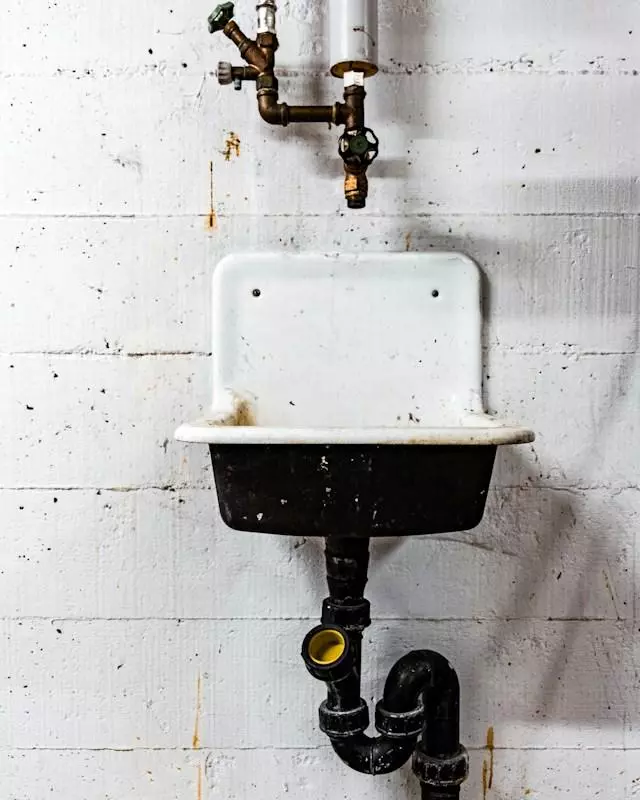For homes, water damage is a frequent and very expensive problem. A clogged drain is one of the frequently disregarded causes of water damage. Even while a clogged drain can just seem like a small annoyance, if it is not fixed right once, it can have serious repercussions. This article examines the several ways that clogged drains can result in water damage and provides advice on remedies and preventative actions.
Slow Drainage and Backups
Slow drainage is one of the first indications that the drain is plugged. Debris builds up in the pipes, obstructing water flow and causing slow drainage. Backups may result from the bottleneck getting worse if it is ignored. These backups may cause water to overflow from showers, sinks, or toilets, damaging the surrounding environment right away and maybe resulting in structural problems down the road. Resolving sluggish drainage as soon as possible protects the plumbing system’s integrity by reducing the chance of water damage and preventing backups.
Burst Pipes and Increased Pressure
Pipes might break as a result of increased pressure in the plumbing system caused by persistent blockages. Pipes may burst due to the force created by the collected water attempting to get past the barrier. In addition to causing substantial water damage in the affected region, burst pipes might necessitate costly repairs and expert assistance. In order to prevent bursts and the resulting water damage, regular inspections by any water damage restoration company to find and remove any blockages can relieve pressure on the pipes. This encourages a proactive attitude to plumbing maintenance.
Seepage and Structural Damage
Obstructions in drainage systems can cause water to seep into the interior of buildings. This seepage’s structural harm may gradually weaken the building’s stability. The buildup of moisture over time may encourage the formation of mold, which would worsen the damage and perhaps endanger the health of the residents. To prevent seepage-related damage to the building, preventative methods like installing pipe guards and doing periodic inspections assist in finding and fixing clogs before they get worse.
Basement Flooding
Flooding can be caused in part by clogged drains, particularly in the basement. This is especially significant because basements are frequently used for storage, and water damage can lead to the disintegration of appliances and personal items as well as jeopardize the stability of the home’s foundation. Maintaining proper drainage systems is essential to avoiding flooding in the basement and the resulting water damage. Efficient water flow is ensured by routinely inspecting and cleaning basement drains, which lowers the chance of flooding and its negative effects.
Damage to Appliances and Fixtures
Numerous home fixtures and appliances that are related to the plumbing system might be affected by clogged drains. This equipment, which ranges from dishwashers to washing machines, depends on effective drainage. A clog can interfere with the drainage process, which can result in leaks, broken appliances, and nearby places being damaged by water. By putting preventive measures in place, such as drain screens and careful disposal practices, appliances are kept operating properly, the risk of water damage is decreased, and the lifespan of these expensive household equipment is extended.
Erosion of Landscaping
If clogged, outside drains can lead to water damage that extends outside the house. Water overflowing onto outdoor structures and landscapes can occur due to blockages in gutters, the downspout, or external drainage systems. This overabundance of water can weaken the foundation of exterior features, erode soil, and harm plants. Frequent upkeep reduces the chance of water damage to the exterior of the house by protecting the landscaping and preventing erosion, which includes cleaning gutters and making sure outdoor spaces have enough drainage.
Preventive Measures and Maintenance
Proactive steps are necessary to reduce the hazards related to clogged drains and possible water damage. Important preventive measures include installing drain guards, cleaning and inspecting drains on a regular basis, and disposing of trash properly. Additionally, homeowners need to be careful about what they put down the drains. They should not dispose of hair, grease, or other anything that might clog them. A complete strategy for maintaining the plumbing system, lowering the possibility of blockages, and lowering the danger of water damage throughout the house is created by putting preventative measures into place and integrating routine maintenance into daily household routines.
Conclusion
For homeowners looking to safeguard their properties, knowing the link between blocked drains and water damage is essential. Homes may be protected from the potential destruction of water damage by adopting preventive measures and identifying the symptoms of clogged drains. Maintaining the reliability of the plumbing system and avoiding the expensive effects of water damage may be accomplished in large part by performing routine maintenance and giving drainage problems immediate attention.

